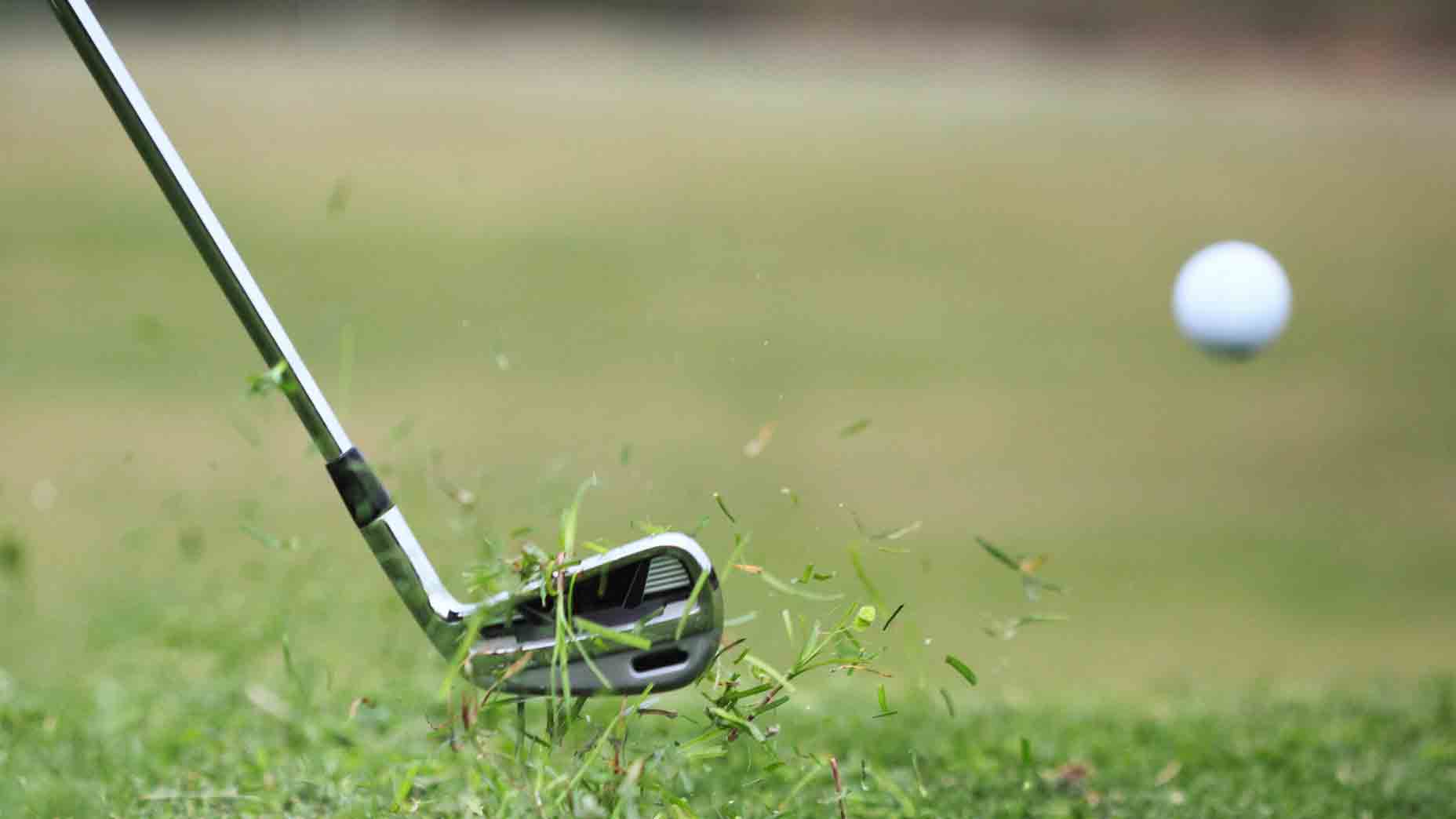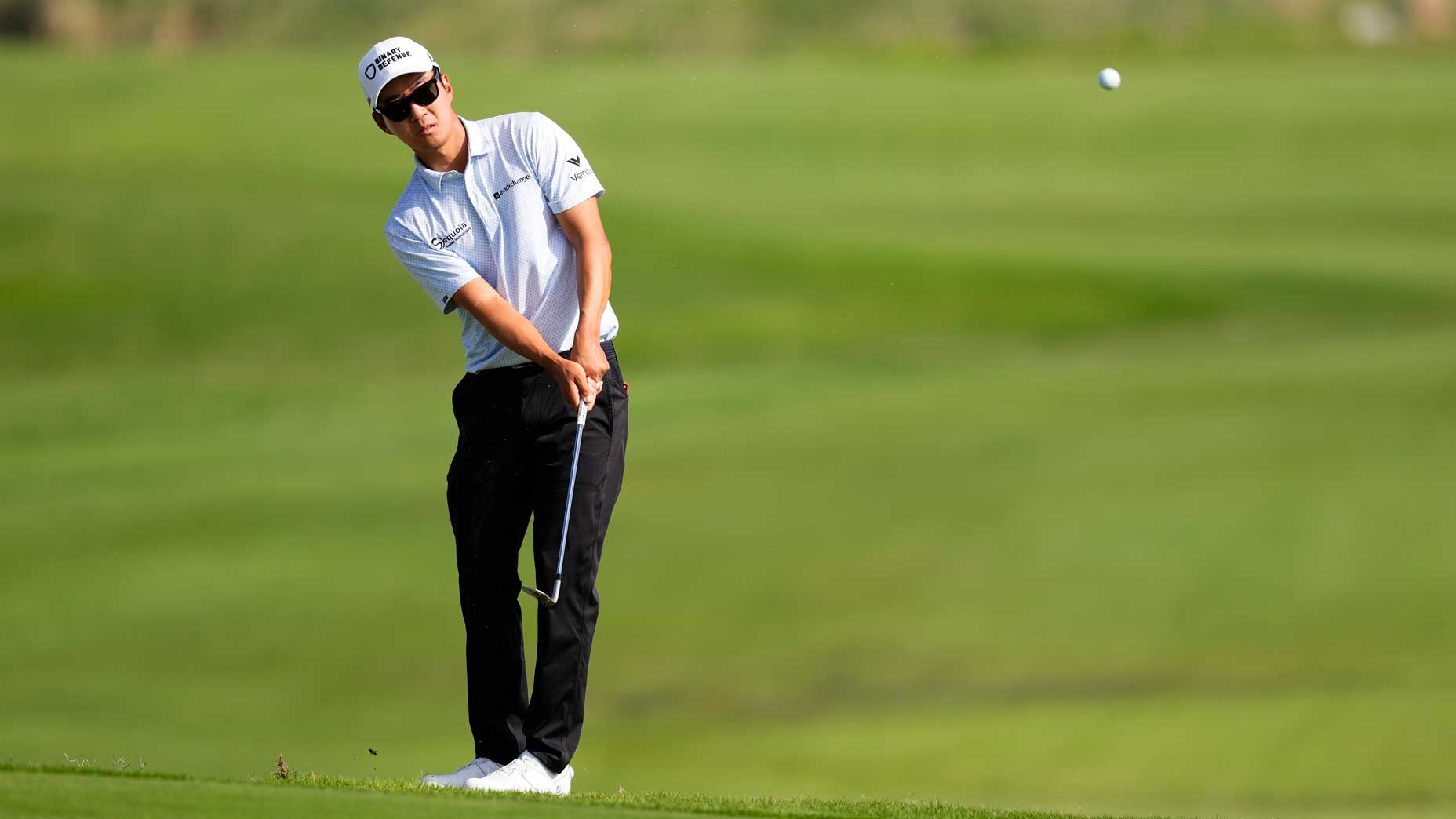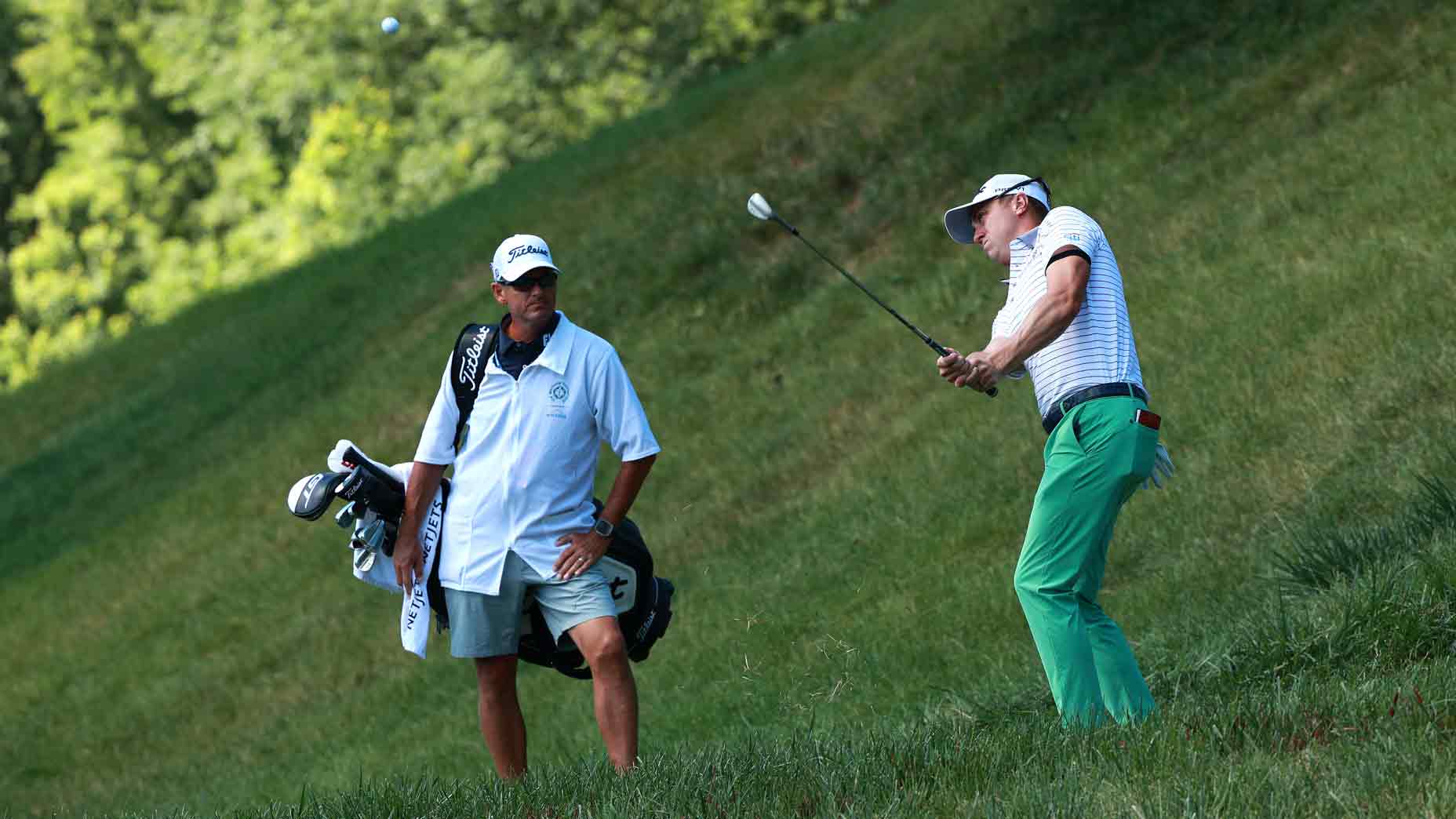1 small thing to notice in your practice swing that may improve real swing

Getty Images
Don’t take a practice swing, Jeff Ritter says. Instead, take a rehearsal swing.
But actually rehearse. Think school play.
“The whole point of a rehearsal is to make sure you’re not going to suck,” Ritter said. “So if everyone knows all their lines and we go, hey, it looks like it’s going to be a good show, let’s put on a show.”
It also applies to golf, the top coach said.
He was talking on a video he recently posted to his Instagram account, and you can watch it in full here, or above. The takeaway is not to swing for swing sake ahead of a shot. Make it count. Rehearse.
And try to notice where your club’s low point is — and adjust, if need be.
“So in golf,” Ritter said on the video, “if you set up next to the ball and you rehearse, and you see the low point back here [at a spot behind the ball], it’s not going to be a good shot. So on the golf course, you want to set up next to your ball and just brush the grass a couple of times with your weight forward and your arms straight and once you see some evidence, that’s going to be a good show. You just make a little bigger swing and away you go.”
In the video, Ritter also offered a tip on how to create better contact. In the description to his Instagram post, he called it advice on how to hit shots more predictably.
In short, you want to brush the grass on the “target side of the ball,” or just past the ball. And to do that?
Weight forward.
“So you go, OK, what helps control where the club hits the ground?” Ritter said in the video. “Well, for us, it’s going to be having our weight forward when we hit, right? So if my weight’s a little bit too 50/50 when I’m coming through, I can end up a little bit back here [at a spot behind the ball]. So coming through, I feel like my weight’s on my front foot … and then my arms are extending to the target, then we’re going to see the brush up here [at a spot just past the ball].”
Notably, the author of this article has used the rehearsal advice for the past few years. It had come up after watching a GOLF.com video where six-time major winner Lee Trevino talked about how the arms in a golf swing act as tree limbs, and that feet should adjust to accommodate the low point — and the author started to use the thought in practice swings.
In Ritter’s video, he summed things up this way:
“So the most important thing,” he said, “is hitting the ground in the right spot with a reasonable angle of attack, which means we’re hitting down just a little bit. If our weight is back, the low point is going to be back. So weight forward, arms straight, Rehearsal swings over practice swings.”
Editor’s note: If you’re interested, you can read the Trevino advice by clicking here, or by scrolling down. The headline of the story is “Why your ball position is hurting your golf swing, according to Lee Trevino.”
***
What do you ask golf legend Lee Trevino, who doubles as potentially the best ball striker of all time, when the opportunity presents itself? With a seemingly infinite amount of golf wisdom at his disposal, I decided to keep it simple:
“What’s some advice for golfers who struggle to hit the ball solidly?”
For a moment, I was worried the question was too broad, but Trevino, speaking at the 2021 Berenberg Invitational, didn’t miss a beat.
“Your arms are only so long,” he says. “You have to understand that your arms are like the limbs attached to the trunk of a tree. My body is the trunk, and my arms are the limbs. They swing back and forth.”
The analogy is a useful one because it describes something lots of pros think about: the “radius” of their golf swing. Your arms are going to straighten as you swing, Trevino says, which means you need to monitor the literal space between yourself and the golf ball you’re trying to hit.
And in that regard, there’s nothing more important than your ball position.
Let’s go back to Lee’s tree limb analogy. Your arms — the limbs — swing back and forth around the trunk of the tree. As your arms do this, there’s a point where they begin moving up and around your body, away from the golf ball. This is why, Trevino says, a common mistake occurs when golfers play the ball too far forward in their stance: Their arms begin coming up, which brings the club with them, which results in thin shots, whiffs and other mishits.
“They’re coming up before they’re hitting the golf ball,” Trevino says. “The ball is going low, it’s going left, and you’re catching the ball thin.”
It’s why Trevino tells golfers to play the ball more back in their stance than they think. It’ll help them make a compressed strike on the golf ball and send the ball straighter.
You can watch Trevino in his own words below.



